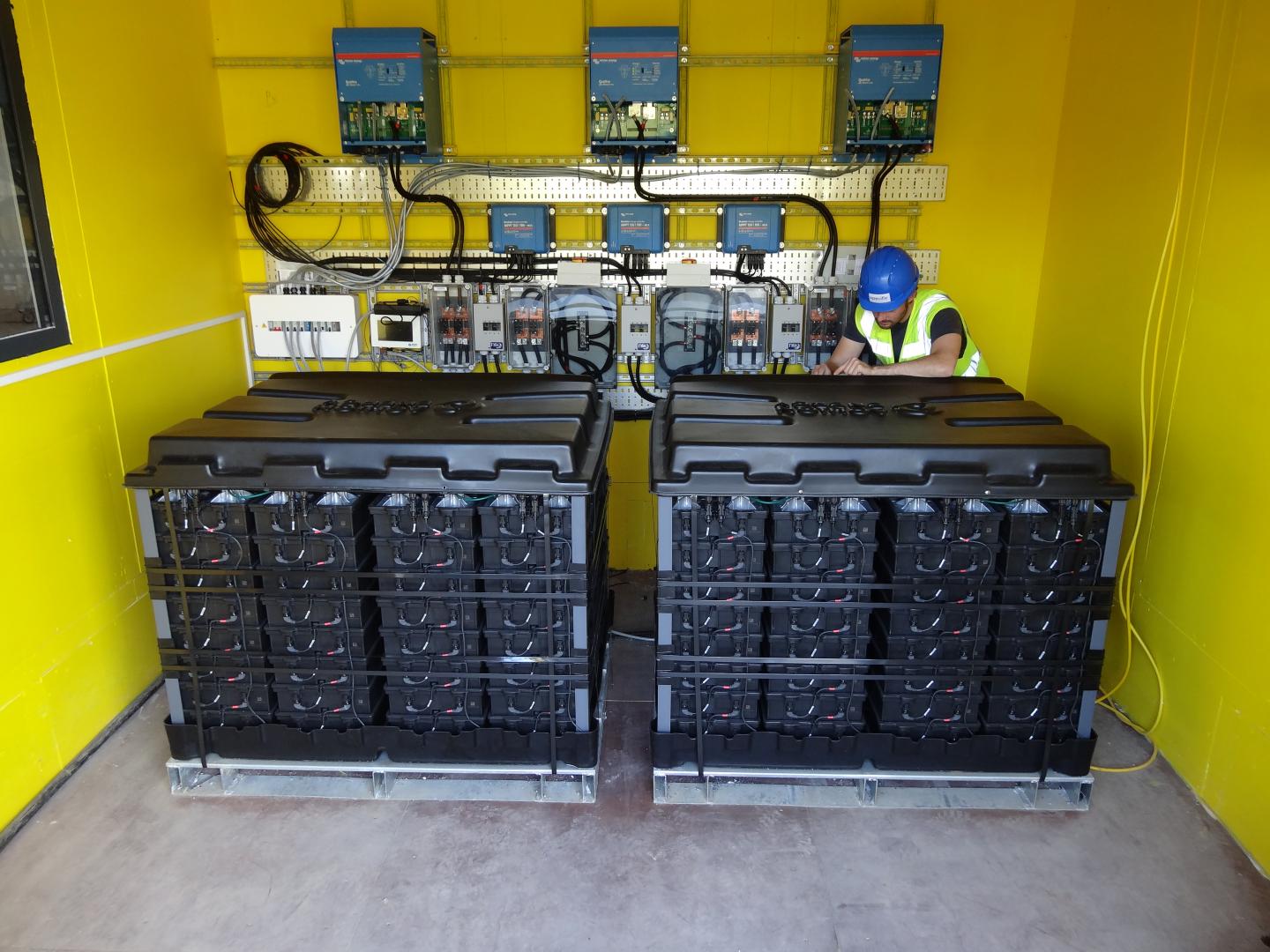Report calls for homes to become mini power stations
Turning homes into mini power stations could help reduce energy bills by more than 60 per cent, according to a new report.
The concept has already been deployed on a building in Swansea, where an ‘Active Classroom’ combines integrated photovoltaics (PV) and battery storage with solar heat collection. Saltwater batteries can power the classroom for two days, and over six months of operation the building has produced more energy than it has used.

(Credit: SPECIFIC/Swansea University)
Developed by Swansea University's SPECIFIC Innovation & Knowledge Centre, the integrated approach is being rolled out for the Active Homes Neath social housing development. The new homes will feature solar roofs, shared battery storage and the potential for charging points for electric vehicles. Water heating will come via a solar heat collector on south facing walls, while waste heat will be captured and recycled.
"The scale of the potential impacts is compelling, and demands that we make considered decisions about how we meet housing needs sustainably,” said energy consultant and author of the report, Andris Bankovskis.
Register now to continue reading
Thanks for visiting The Engineer. You’ve now reached your monthly limit of news stories. Register for free to unlock unlimited access to all of our news coverage, as well as premium content including opinion, in-depth features and special reports.
Benefits of registering
-
In-depth insights and coverage of key emerging trends
-
Unrestricted access to special reports throughout the year
-
Daily technology news delivered straight to your inbox










National Gas receives funding to develop Gravitricity underground hydrogen storage system
One single rock salt mine - Winsford - has 23 <i>MILLION </i>cubic metres of void and even allowing for 10% of that void set aside for hazardous waste...